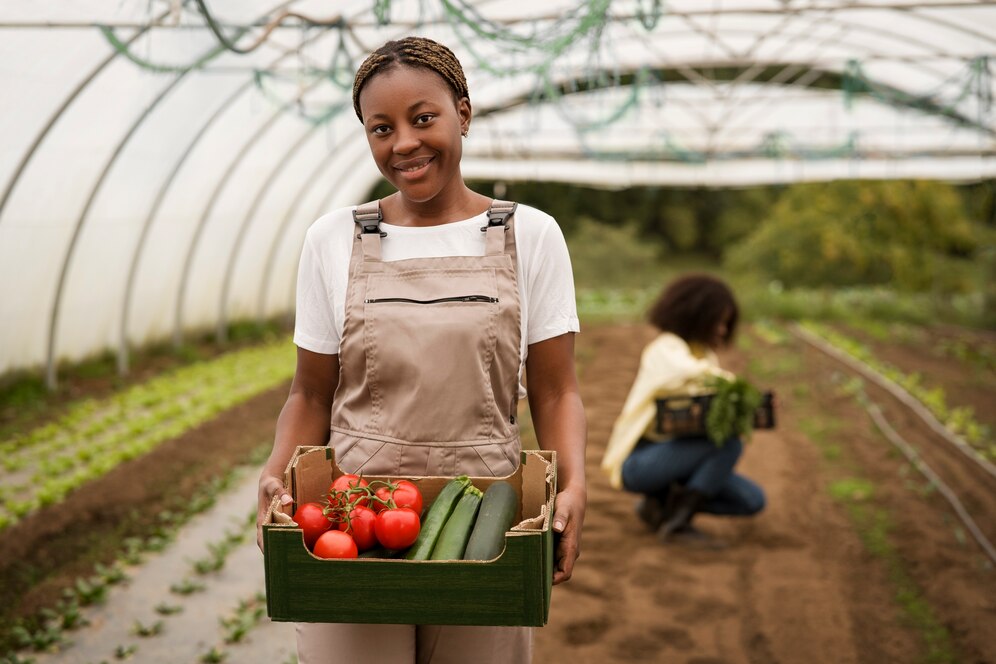Food security is a critical issue that affects the well-being and livelihoods of individuals and communities. In Namibia, efforts to improve food security are essential for ensuring access to safe, nutritious, and sufficient food for all. In this blog, we will explore actionable steps and approaches to enhance food security in Namibia.
- Enhance Agricultural Productivity:
Investing in agricultural productivity is crucial for improving food security. Encourage the adoption of modern farming techniques, sustainable agricultural practices, and the use of appropriate technology. Provide farmers with access to quality seeds, fertilizers, and irrigation systems. Offer training and support to enhance their skills and knowledge. - Promote Diversification of Crops:
Encourage farmers to diversify their crop production. Promoting a wider range of crops can enhance resilience to climate change, reduce dependence on a few staple crops, and increase dietary diversity. Support farmers in growing drought-resistant and indigenous crops that are well-suited to local conditions. - Strengthen Water Management:
Water scarcity is a significant challenge in Namibia. Implement effective water management strategies, such as water harvesting techniques, efficient irrigation systems, and the conservation of water resources. Encourage the use of water-saving practices in agriculture and collaborate with communities to promote responsible water usage. - Facilitate Access to Land and Resources:
Ensure equitable access to land and resources for small-scale farmers and marginalized communities. Simplify land registration processes and provide support for land tenure security. Facilitate access to credit, inputs, and markets for small-scale farmers to enhance their productivity and income-generating potential. - Invest in Rural Infrastructure:
Improve rural infrastructure to connect farmers to markets and improve post-harvest handling and storage facilities. Develop transportation networks, cold storage facilities, and processing centers to reduce post-harvest losses. Strengthen value chains and create linkages between farmers, suppliers, retailers, and consumers. - Support Agricultural Research and Innovation:
Invest in agricultural research and innovation to develop improved crop varieties, farming techniques, and pest and disease management strategies. Collaborate with research institutions, universities, and farmers to promote the adoption of innovative practices that enhance productivity and resilience in agriculture. - Empower Women in Agriculture:
Recognize and support the crucial role of women in agriculture. Provide training, resources, and access to credit for women farmers. Promote gender equality in land ownership, decision-making processes, and access to markets. Empowering women in agriculture can significantly contribute to improving food security and reducing poverty. - Foster Sustainable Livestock Production:
Promote sustainable livestock production practices, including proper animal husbandry, disease control, and sustainable grazing management. Encourage the use of improved animal breeds, veterinary services, and fodder production. Promote sustainable and responsible fishing practices to protect marine resources and ensure long-term food security. - Strengthen Food Safety and Nutrition:
Enhance food safety standards and regulations to ensure the availability of safe and nutritious food. Promote awareness and education on proper food handling, storage, and preparation. Encourage the consumption of diverse and balanced diets through nutrition education programs and initiatives. - Collaborate and Engage:
Addressing food security requires collaboration and engagement across multiple stakeholders. Foster partnerships among government agencies, NGOs, farmers’ associations, private sector entities, and local communities. Foster dialogue, knowledge sharing, and coordination to develop comprehensive strategies and implement effective solutions.
Improving food security in Namibia is a multi-faceted endeavor that requires sustainable agricultural practices, equitable access to resources, investment in infrastructure, and collaboration among stakeholders. By enhancing agricultural productivity, promoting crop diversification, strengthening water management, empowering women in agriculture, and fostering innovation, Namibia can make significant progress in ensuring food security for its population. Let us work together to nurture nourishment, reduce hunger, and build a resilient and sustainable food system for a brighter future in Namibia.
